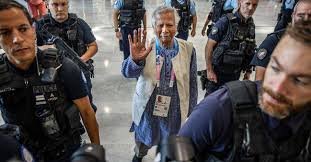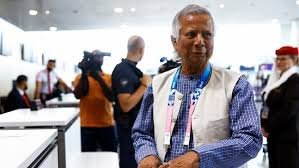The political landscape in South Asia has undergone a major change with the resignation of Bangladesh Prime Minister Sheikh Hasina amid widespread protests. At the root of these protests that have spread across the country are deep-rooted economic grievances, allegations of corruption and growing demands for democratic reforms, along with speculations of some hidden foreign hands.

The departure of a leader who has been in power for over a decade is a turning point for Bangladesh, creating a power vacuum and uncertainty about the country’s immediate future. This development holds significant implications for India-Bangladesh relations, raising important questions about the future of bilateral ties. It was clear that the US had problems with the Hasina government, now that the new government in Bangladesh has taken charge, it remains to be seen how it maintains its ties with Washington, Beijing and New Delhi.
For decades, India and Bangladesh have shared a complex relationship, characterized by both cooperation and sometimes estrangement. During Sheikh Hasina’s tenure, India and Bangladesh witnessed a period of unprecedented cooperation, with landmark agreements on issues such as border management and water sharing. However, the sudden political change in Dhaka has now brought this relationship to a critical juncture. The rise of a military-backed government has introduced new variables into the geopolitical equation. This brings into focus how such a government might redirect Bangladesh’s foreign policy, economic strategies and security priorities, which may align with or diverge from India’s interests.

